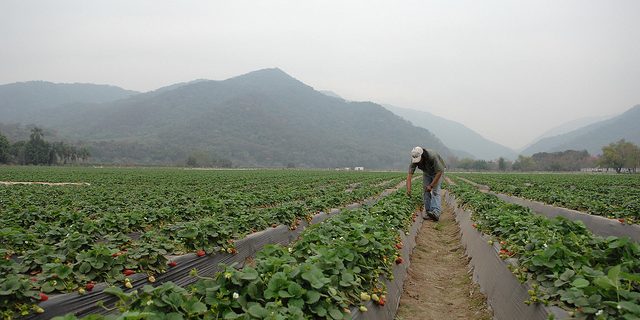Trump Doesn’t Really Want to Stop Immigration
David Bacon’s recent article “What Trump Can and Can’t Do to Immigrants” concisely articulates US immigration policy’s role within today’s economic system. The article goes on to describe what can be expected under the Trump administration, and analyzes the systemic nature of immigration policy while presenting ways immigrants and allies can resist. The below article is based on Bacon’s full analysis.
Trump’s rhetoric and actions targeting undocumented immigrants and migrant workers are an extension of oppressive pre-existing anti-immigration policies and legislation. Trump inherited a system which already existed; this system was reified by his conservative and liberal predecessors. Clinton, Bush, and Obama all administered varying degrees of repressive immigrant detention and deportation policies. Over 2 million people were deported under Obama’s administration; further, many immigrants languished in private detention facilities.
Bacon’s analysis articulates a narrative that is often missing from the conversation surrounding US immigration policy—the labor requirements of US corporations. Immigrant labor subsidizes entire industries, including food production, processing, and more. If these 11 million workers disappeared, wages would have to dramatically rise in order to fill the positions, presenting a contradiction in the current economic system. Industry needs profits, and inexpensive immigrant labor provides those profits to corporations.
Ultimately, as Bacon explains, “Trump will do what the system wants him to do.” Trump’s policies, like those that preceded him, fundamentally serve “capitalist economic interests by supplying a labor force employers require.” The policies of enforcement, detention, and deportation line the pockets of the many companies and individuals that profit from immigration policy.
Bacon notes that the executive and congressional policies on immigration, whether Democrat or Republican, all converge around a single understanding—policy must align with the labor needs of corporations; Donald Trump will likely oblige as his predecessors before him have.The current immigration enforcement system is intrinsically intertwined with a “labor-supply scheme” which effectively seeks to manage and control the flow of labor for corporate needs.
Trump’s proposed immigration enforcement system is meant to force immigrant labor into schemes that benefit corporations, such as the H-2A guest worker program and other forms of contract labor. The undocumented migrant workers deported under Trump’s enforcement system would simply be replaced by increasingly oppressed immigrant labor–in this case, “guest workers.” The conditions and existence of these guest workers have been compared by many organizers and activists to indentured servitude and slavery. Trump supporters will not receive the fantasy of an immigrant-free US they desire; meanwhile, corporations’ needs for cheap, precarious labor will be steadfastly assured.
The immigration enforcement and deportation apparatus, coupled with guest worker programs, will undermine union and labor organizers. Immigrant workers have been the bedrock of the organized labor movement for the past two decades, while the power of most other organized labor has diminished significantly. Guest workers’ visas are tied to their employers and are temporary, and they can be deported the moment they lose their job—meaning the fear of deportation is likely to prevent organizing under already-difficult conditions.
Stay in the loop with Food First!
Get our independent analysis, research, and other publications you care about to your inbox for free!
Sign up today!While Trump’s victory may seem like a disaster for the undocumented immigrant community, it may provide an opportunity for mainstream actors to finally understand and act upon immigration policy’s systemic nature–and to join forces with grassroots immigrant and labor organizers to effectively resist it.
We must recognize that the US economic system is driving US immigration policy. The current administration, along with past administrations, has no desire to stop mass immigration, but rather to control it in the name of corporate interests. Today’s immigration policy only serves the needs of corporations, while dividing workers along racial and ethnic lines. Only by resisting oppressive immigration enforcement regimes in all their forms, which only serve corporate interests, can all workers and people achieve a justice-filled future.


 Help Food First to continue growing an informed, transformative, and flourishing food movement.
Help Food First to continue growing an informed, transformative, and flourishing food movement.




